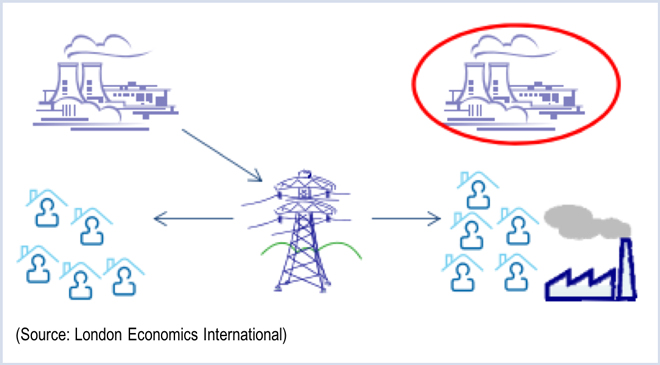By Chris O’Malley
The Federal Energy Regulatory Commission last week declined to rehear DTE Electric’s contention that MISO rules put generation developers at a disadvantage in the competition for reliability projects.

Comparable Treatment
The commission agreed with MISO that the requirement is comparable to those required for transmission solutions in its Transmission Expansion Plan process (MTEP). FERC also accepted MISO’s compliance filing in response to the commission’s Order 809 transmission planning requirements (OA08-53-005, ER15-133).
To allow generator proposals to progress through the interconnection process, DTE said more time is needed between when MISO identifies a system need and when it approves a transmission facility to meet the need. The time it takes MISO to complete interconnection studies “makes it more likely than not that a generation project could never even be considered by MISO as an alternative to a transmission project,” DTE said.
The company said generation developers won’t have the information they need regarding potential system needs until Sept. 15, when transmission owners must identify and submit new transmission projects within the MTEP process.
FERC said that developers should be able to identify system needs based on power flow models available in June. But DTE countered, “It is far-fetched to believe that a proponent of a generation solution would be able to use that data to determine that a transmission problem existed or even if it could, offer a generation solution to that problem in the allowed timeframe.”
The commission was not persuaded. DTE “does not explain why a generation developer must wait until a transmission facility is proposed before it can identify potential generation solutions to the needs the transmission facility is meant to address,” FERC said. “Just as the proponent of a transmission solution considers system needs to identify potential transmission facilities to meet those needs, so too can the proponent of a generation solution.”
Catch 22?
Developers have until April to submit generation projects — including executed interconnection agreements — as alternatives to transmission projects that were proposed the preceding September.
DTE disputed the commission’s finding that a generator that may mitigate a particular transmission need is likely being evaluated in the interconnection process long before the April deadline.
The company noted that generators in the interconnection process are considered operational. As a result, it said, any transmission projects identified in the MTEP process will be those needed in addition to generation in the interconnection process, and any new generation alternatives would be precluded from ever being evaluated against the newly identified transmission need.
FERC saw it differently. “If a generation solution that goes through the interconnection process and has an interconnection agreement filed with the commission does in fact address the need, MISO will not identify a transmission facility to meet the need and the generator alternative will have successfully replaced a transmission facility,” the commission said.
Not Viable
FERC agreed with DTE that MISO is unlikely to replace an approved transmission facility with a generation solution if the transmission developer has already begun right-of-way acquisition, completed design and engineering, ordered material and obtained permits.
“That means only that the generation solution did not have the necessary contractual commitments for MISO to consider it a viable alternative to the transmission solution before the transmission solution had to begin being developed,” FERC said.


